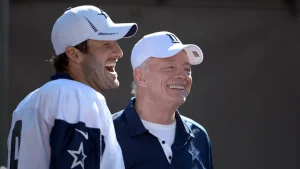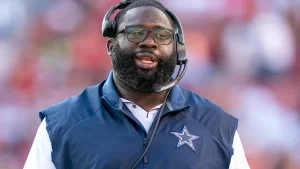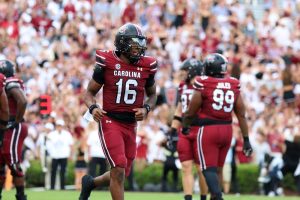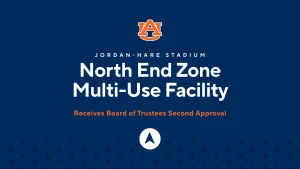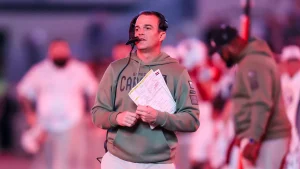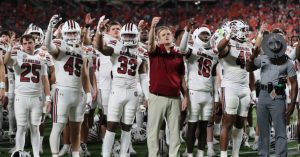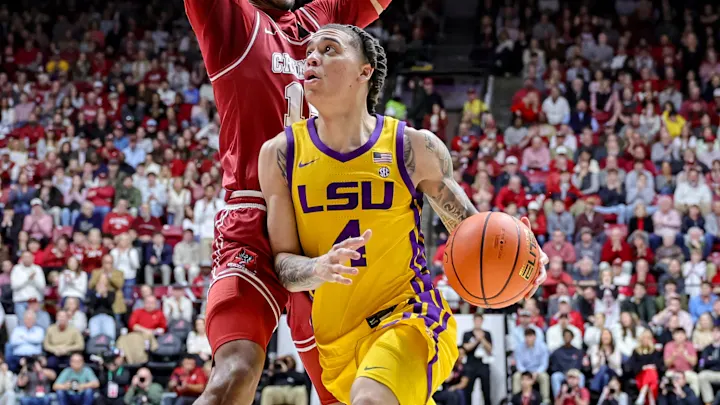
LSU Football Great Joe Burrow: ‘Go Wherever They Are Paying You The Most’
Joe Burrow, LSU football’s legendary quarterback, is no stranger to making headlines. His story is one of perseverance, talent, and overcoming adversity. As a young athlete, Burrow faced numerous challenges on his way to becoming one of the best quarterbacks in college football history. But his rise to prominence has not only been defined by his on-field success—his candid approach to his career, particularly in regards to the financial side of things, has also sparked widespread discussion.
Burrow, who won the 2019 Heisman Trophy and led LSU to a national championship victory, is known for his on-field accomplishments and his leadership abilities. Yet, in 2025, Burrow made headlines once again—this time with a statement that shook the sports world: “Go wherever they are paying you the most.”
This bold assertion about navigating a career, especially in the world of professional sports, is not as controversial as it might seem at first glance. In fact, Burrow’s comment underscores a harsh reality that many athletes face—decisions about career moves are often driven by financial considerations, even as personal values and team loyalty may weigh heavily in their choices.
Joe Burrow: A Brief Overview
Joe Burrow’s journey to the NFL has been anything but conventional. Originally a four-star recruit from Athens, Ohio, Burrow began his college career at Ohio State University before transferring to Louisiana State University (LSU) in 2018. It was at LSU where Burrow truly emerged as a superstar, culminating in his 2019 Heisman-winning season. That year, Burrow threw for over 5,600 yards, 60 touchdowns, and only six interceptions, leading LSU to its first national championship since 2007.
Burrow’s transition to the NFL was equally remarkable. Drafted by the Cincinnati Bengals as the number one overall pick in the 2020 NFL Draft, Burrow quickly became the face of the franchise. Though his rookie season was marred by an unfortunate knee injury, his talent was undeniable, and the Bengals are now a team on the rise with Burrow leading the way.
Off the field, Burrow has remained humble and focused on his career, but he has also been vocal about issues affecting athletes, including the question of financial compensation. The concept of athletes seeking the highest bidder for their services has become more prominent in recent years, especially with the growing influence of NIL (Name, Image, and Likeness) deals in college sports and the evolving nature of professional contracts in the NFL.
The Context of Burrow’s Statement
Burrow’s quote—”Go wherever they are paying you the most”—was a response to a series of events that have unfolded in both the college and professional sports worlds. It reflects a shifting attitude towards player compensation, particularly in light of the growing power of professional athletes and the increasing focus on financial opportunities.
As one of the most successful quarterbacks in college football history, Burrow is no stranger to the financial conversations surrounding professional sports. In recent years, many athletes have moved beyond the traditional team loyalty narrative, and the focus has shifted towards maximizing earnings during the relatively short career span of a professional athlete. With endorsements, personal brand deals, and larger-than-ever contracts, athletes are able to negotiate their worth on a more individual basis.
In the college football landscape, Burrow’s comment is particularly interesting given the current state of NIL deals. College athletes can now earn money from their name, image, and likeness, which has created a competitive environment for schools to offer financial incentives to recruits and current players. In the past, players were prohibited from accepting money, but the Supreme Court’s ruling on NIL rights has opened the door for athletes to capitalize on their fame and success. Burrow, who benefitted from a prestigious LSU program and its robust recruitment efforts, may see NIL as a stepping stone to even greater financial success.
At the professional level, Burrow’s comment could be interpreted as a pragmatic outlook on his own career. Burrow has already demonstrated that his priorities lie not just in winning games, but in securing long-term financial security for himself and his family. With the NFL’s salary cap structure and teams vying for Burrow’s services, his statement could be seen as a reminder that, in the end, athletes are also businessmen—and they must make choices that ensure their financial well-being.
The Financial Realities of Professional Sports
When Burrow advises others to “go wherever they are paying you the most,” he highlights a key aspect of professional sports that is often glossed over in discussions of loyalty, legacy, and team-building. The truth is that professional athletes, particularly in the NFL, have very limited time to capitalize on their physical talents. With the average career length of an NFL player hovering around 3-4 years, making smart financial decisions early in their careers can set them up for the rest of their lives.
The reality of playing professional sports is that, beyond fame and accolades, athletes must think about their financial futures. For a quarterback like Burrow, who plays in one of the highest-paying positions in football, this means signing multi-million-dollar contracts, negotiating endorsement deals, and ensuring that his financial portfolio is solid for life after football.
While some fans may view a player’s departure from a team as a betrayal, the financial dynamics of the NFL are starkly different from those of a typical office job or even other professions. In the NFL, the value of a player is continually evaluated based on their performance, and teams often prioritize winning over loyalty. As such, it is in the best interest of a player to ensure they are compensated appropriately for their skills and contributions, especially given that career-ending injuries can happen at any time.
The increasing presence of NIL deals in college sports has further blurred the lines between amateur and professional athletes, creating a more competitive environment where players can maximize their earning potential early on. As more and more high-profile athletes leverage these financial opportunities, the distinction between loyalty to a team and securing the best financial deal has become more pronounced.
A Changing Landscape for Athletes
Burrow’s quote may have raised some eyebrows, but it also reflects a broader shift in how athletes, especially those in football, view their careers. Gone are the days when players were expected to stay with one team for their entire careers, forgoing bigger contracts and endorsements for loyalty’s sake. This attitude has changed as the financial stakes in sports have risen.
In professional sports, particularly football, there is an increasing awareness that players’ careers are fleeting. Due to the physical nature of the sport, athletes can expect only a few years at their peak, during which time they must earn enough to sustain them throughout the rest of their lives. Burrow, who has experienced both the highs and lows of a football career, recognizes this and has embraced the idea that players should pursue the financial opportunities that come their way, without being overly swayed by loyalty or expectations of staying in one place.
This shifting attitude can also be seen in how athletes view their contracts and endorsements. In an era where endorsement deals and personal branding are increasingly important, players are encouraged to diversify their income streams and make financial decisions that benefit them both in the short and long term. For many athletes, the appeal of securing the highest-paying contracts, whether through endorsements or salary, has become a key priority in their decision-making process.
The Importance of Financial Literacy in Sports
Burrow’s comments also underscore the importance of financial literacy for athletes. While many players may have agents to help manage their contracts and finances, it’s essential for athletes to educate themselves about personal finance and long-term wealth management. In recent years, many professional athletes have faced financial difficulties after retirement, often due to mismanagement or lack of foresight.
By promoting the idea of seeking the best financial opportunity, Burrow may be sending a message about the importance of financial independence and planning for the future. This is particularly important for athletes in high-risk sports like football, where injuries can derail a career at any time. For Burrow, the goal may not just be to secure financial success for himself, but to encourage other athletes to take charge of their financial futures as well.
Joe Burrow’s statement, “Go wherever they are paying you the most,” might sound like a blunt and somewhat controversial piece of advice, but it speaks to the changing landscape of professional sports. As athletes are increasingly viewed as business entities, their decisions on where to play, who to sign with, and how to market themselves are driven by a combination of factors—performance, legacy, and, importantly, financial gain.
Burrow, who has already established himself as one of the most talented quarterbacks in NFL history, has taken a pragmatic approach to his career. For him, as with many other athletes, securing the highest compensation possible is a logical step in ensuring his long-term financial security. Whether or not fans agree with his perspective, Burrow’s advice offers a glimpse into the evolving nature of professional sports and the growing importance of financial considerations in career decisions. In a world where the value of athletes is continually being reassessed, Joe Burrow’s statement may well represent the future of professional sports—where financial decisions increasingly take precedence over loyalty to a team.
